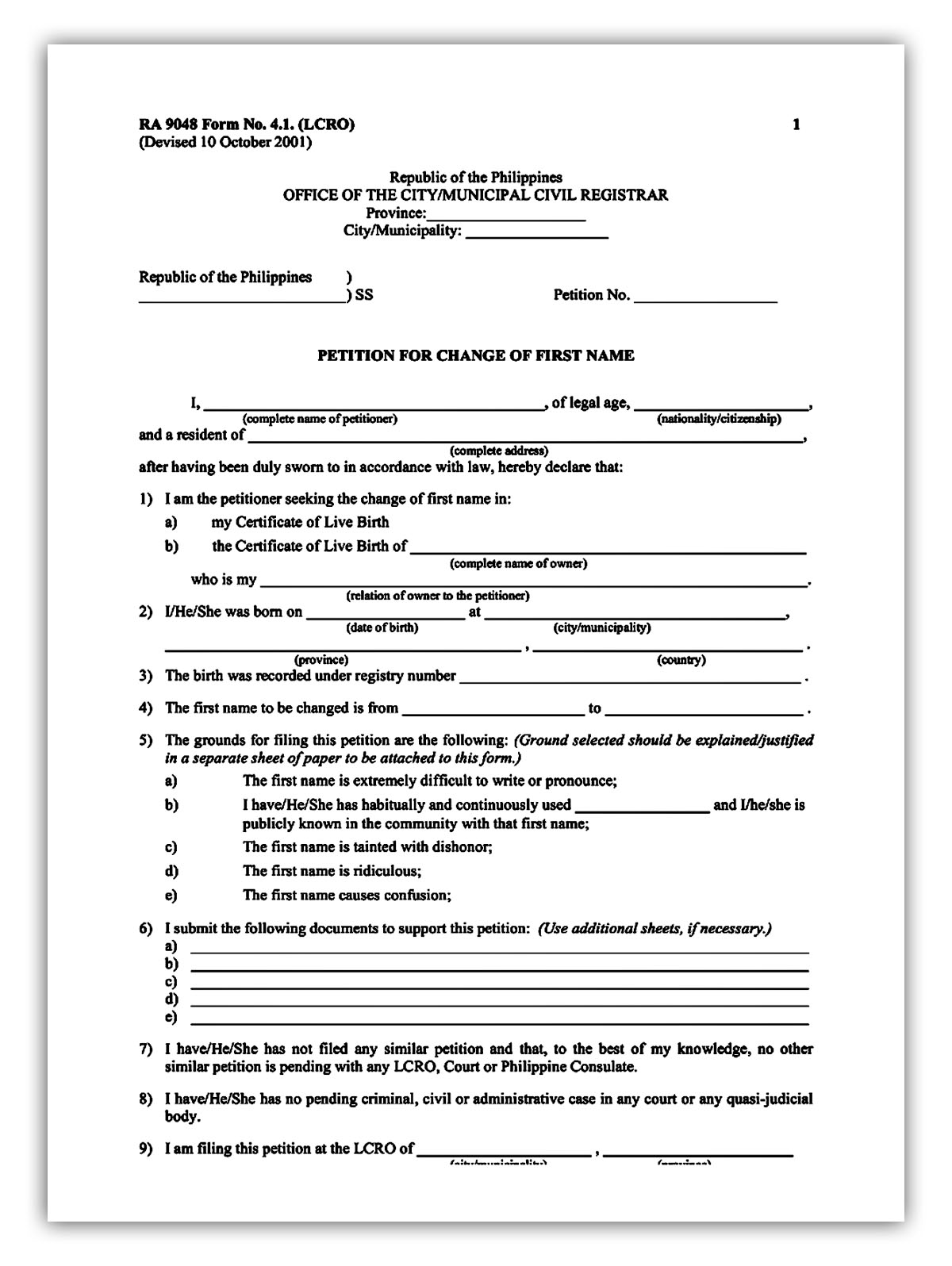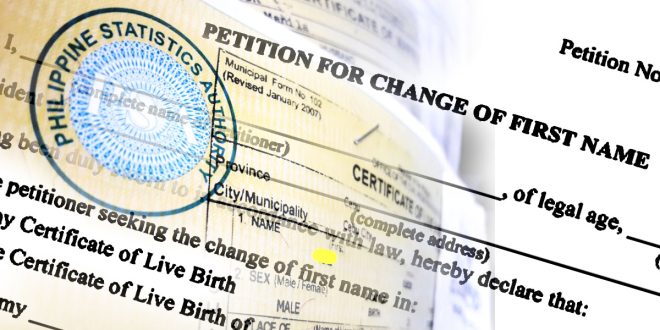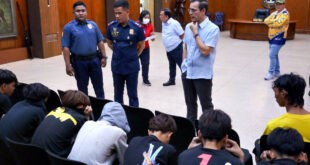UNDER the Philippine Law, a name has two parts – the given name (FIRST NAME), and the family name (SURNAME). Middle names, which in the Philippines are traditionally the mother’s maiden surname, are not required but are often necessary for verifying your identity or in distinguishing you from others who have the same first and last names.
Why people change their first names?
- Extremely difficult to write or pronounce.
- Habitually and continuously used that name.
- Publicly known by that first name in the community.
- Causes embarrassment.
- Tainted with dishonor
- Ridiculous
- Prevent confusion in legal documents and other purposes
- Records show misspelling in his/her name
- Different from the first name entered in the birth certificate.
- To abide by the dictates of a new religion
- To reflect a change in their lifestyle.
Who may file the Petition for Change of First Name?
- The petition may be filed by a person of legal age who must have a direct and personal interest in the change of first name in the civil register.
- A person is considered of legal age when he is eighteen years old and above. Thus, a minor (less than eighteen years old) cannot by himself file a petition for change of his first name.
- Only the following persons are considered to have a direct and personal interest in the correction of clerical error or change of first name:
- Owner of the record that contains the error to be corrected or first name to be changed.
- Owner’s spouse, children, parents, brothers, sisters, grandparents, guardian, or any other person duly authorized by law or by the owner of the document sought to be corrected.
How can I legally change my first name?

 HATAW! D'yaryo ng Bayan hatawtabloid.com
HATAW! D'yaryo ng Bayan hatawtabloid.com



















